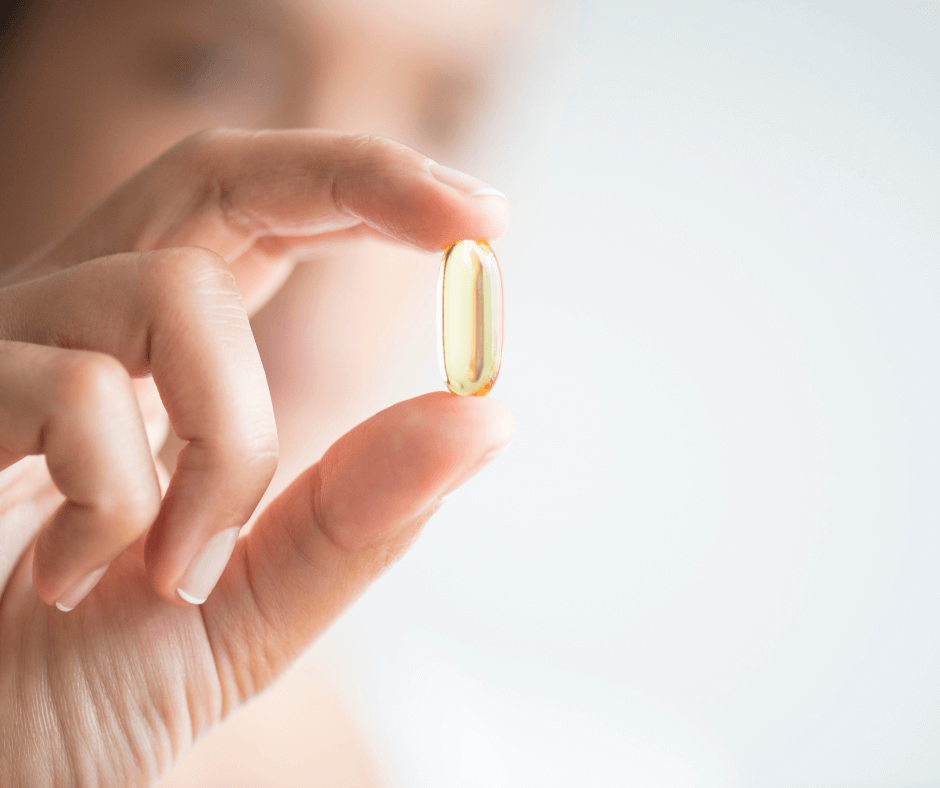Omega 3 and ADHD: Does it really help?

Attention deficit hyperactivity disorder (ADHD) affects a significant number of individuals worldwide, with approximately 5-10% of children and 2-5% of adults diagnosed with the condition (1).
In the United Kingdom alone, around 5% of children aged 5-15 are diagnosed with ADHD (2). The condition is characterized by symptoms such as inattentiveness, hyperactivity, and impulsivity, which can significantly impact an individual's daily functioning and quality of life.
This blog will look at the potential benefits of omega-3 fatty acids in managing ADHD symptoms, looking at their effectiveness, dosage, and possible side effects.
How is ADHD primarily treated?
The primary treatment options for ADHD typically involve a combination of behavioural therapy, education and support, and medication. Stimulant medications, such as methylphenidate or amphetamines, are commonly prescribed to manage symptoms of ADHD. These medications can help improve focus, reduce impulsivity, and enhance overall self-control (3).
What are omega-3 fatty acids?
Omega-3 fatty acids are polyunsaturated fats that are essential for brain health and function. The three main types of omega-3 fatty acids are alpha-linolenic acid (ALA), eicosapentaenoic acid (EPA), and docosahexaenoic acid (DHA). ALA is primarily found in plant-based sources such as flaxseeds and walnuts, while EPA and DHA are commonly obtained from fatty fish like salmon, mackerel, and sardines (4). EPA and DHA are also found in the plant-based source; marine algae, which is a vegan omega-3.
Omega-3 for our brain function
Omega-3 fatty acids play a crucial role in maintaining the structural integrity of the brain and supporting optimal brain function. DHA is highly concentrated in the brain and contributes to cell membrane development and neuronal communication. These fatty acids also exhibit anti-inflammatory properties and influence neurotransmitter release, which is important for mood regulation, attention, and impulse control (5).
Read more about the benefits of omega 3 for the brain here.
Does Omega-3 help with ADHD? What scientists think
Several studies have explored the potential benefits of omega-3 supplementation for individuals with ADHD. While the evidence is not conclusive, some research suggests that omega-3 fatty acids may have a positive impact on certain ADHD symptoms. For example, a meta-analysis of randomized controlled trials published in the Journal of Attention Disorders found that omega-3 supplementation, particularly EPA and DHA, had a small but significant effect in reducing ADHD symptoms (6).
How does omega-3 help symptoms of ADHD?
The exact mechanisms of action by which omega-3 fatty acids may help alleviate ADHD symptoms are not yet fully understood. However, it is thought that their anti-inflammatory properties and impact on neurotransmitters contribute to their potential benefits. Omega-3 fatty acids may help enhance cognitive function, reduce hyperactivity, and improve attention and impulse control. In addition, omega-3s may complement the effects of traditional ADHD medications, allowing for better symptom management (7).
How much omega-3 should I take for ADHD?
The recommended daily intake of combined EPA and DHA for individuals with ADHD typically ranges from 500 to 1000 milligrams. However, it is important to consult with a healthcare professional to determine the appropriate dosage based on factors such as age, weight, and overall health (8). This is compared to the European Food Standard Authority’s recommended level for adults and children above 2 years of 250mg DHA daily.
How to take omega-3 for ADHD?
Omega-3 fatty acids can be obtained through both dietary sources and supplements. Consuming fatty fish like salmon or taking fish oil capsules or liquid forms are effective ways to increase omega-3 intake. In vegan and vegetarian diets, algal oil or flaxseed oil are both good vegan omega 3 sources. When opting for supplements, it is essential to choose reputable brands that undergo rigorous testing for purity and quality (9).
Are there any side effects of taking Omega-3 for ADHD?
Omega-3 fatty acid supplementation is generally considered safe for most individuals. However, some people may experience mild side effects, such as a fishy aftertaste, belching, or gastrointestinal discomfort. These side effects can often be minimized by taking the supplement with meals or selecting an enteric-coated tablet that dissolve further down the digestive tract. As with any supplement, it's best to consult with a healthcare professional before starting omega-3 supplementation, especially if you have any underlying health conditions or are taking other medications (10).
Are There Other Supplements That Help With ADHD?
While omega-3 fatty acids have gained attention for their potential benefits in managing ADHD symptoms, it's important to note that they are not the only supplements that have been studied in relation to this condition. Other supplements that have shown promise in preliminary research include zinc, iron, magnesium, and vitamin D. However, further studies are needed to establish their effectiveness and determine the appropriate dosages (11).
References:
- https://www.cdc.gov/ncbddd/adhd/index.html
- https://www.nhs.uk/conditions/attention-deficit-hyperactivity-disorder-adhd/
- https://www.nimh.nih.gov/health/topics/attention-deficit-hyperactivity-disorder-adhd
- https://www.hsph.harvard.edu/nutritionsource/what-should-you-eat/fats-and-cholesterol/types-of-fat/omega-3-fats/
- https://pubmed.ncbi.nlm.nih.gov/
- https://www.nccih.nih.gov/health/omega3-supplements-in-depth
- https://www.heart.org/en/healthy-living/healthy-eating/eat-smart/fats/fish-and-omega-3-fatty-acids
- https://www.ncbi.nlm.nih.gov/pmc/articles/PMC3037197/




Comments
Lascia un commento
Your Email Address Will Not Be Published. Required Fields Are Marked *